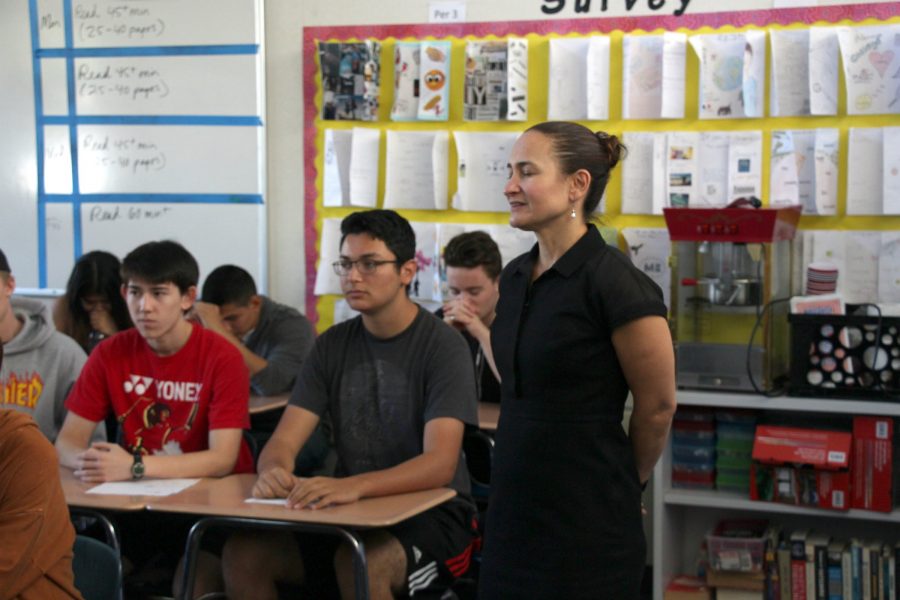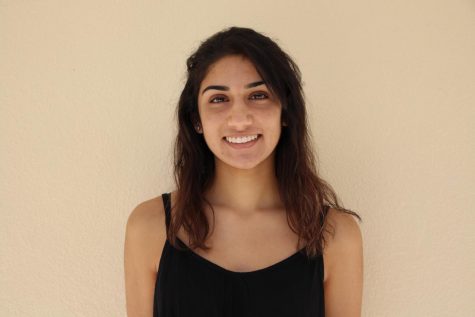School Introduces Positive Psychology Elective
Over the past few months, the momentum of mindfulness practices has taken over Los Altos, manifesting in English class “mindful minutes” and in P.E. classes. Soon there won’t just be brief mindful moments in English and P.E., but an entire class dedicated to exploring the science of what makes people happy. Los Altos recently approved a new elective called Positive Psychology for next school year that aims to teach students the psychology behind mindfulness and happiness.
Positive Psychology is the scientific study of the strengths that empower individuals and communities to flourish. It teaches four main objectives: having resilience, creating relationships with others, finding joy in work and helping others live a fulfilling life. Since freshmen already have a mindfulness unit in their P.E. classes, the full year elective will be available for sophomores, juniors and seniors.
“Psychology originally focused on what’s wrong with humans and how to fix all these problems and psychoses, and positive psychology looks at what’s right with humans and what makes us happy,” English and Film Analysis teacher Susana Herrera said.
Herrera, who has implemented mindfulness practices in her classes and takes lessons on teaching mindfulness, will teach the new course. She hopes the class will provide an opportunity for students to take a step back from their lives, analyze their experiences and learn skills that will enable them to thrive.
“It seems like the focus in our world today, especially in the Bay Area, is if you work hard, then you’ll be successful because you’ll go to a great college and… you’ll be happy someday,” Herrera said. “Happiness is not somewhere over the rainbow. It has to start here.”
A large portion of the curriculum examines how different elements of life such as how stress, relationships, culture and wealth affect students’ personal happiness. Many activities that Herrera plans to incorporate in the classroom come from Gunn High School’s Positive Psychology teacher Ronin Habib, who gave a lecture on positive psychology to the staff at the MVLA district at the beginning of this school year. After hearing about Habib’s class, Herrera and Satterwhite collaborated on creating a Positive Psychology class for Los Altos students.
“Hopefully it’ll be a class that people really want to take because they’re interested in themselves,” Herrera said. “I mean, aren’t we all?”
The class will explore and answer questions about how people choose to carry themselves as a result of societal expectations. The workload of the class will not be too rigorous. In the class, students will discover themselves through a variety of projects using different forms of expression. Departing from the traditional class activities like textbook reading and structured writing, the elective will include activities like walking in an unusual manner to music in order to let go of inhibitions and creating special handshakes to build connections with peers. Instead of essay writing, students will express themselves through creative art mediums.
“If we were to dance like nobody’s watching, what would we do?” Herrera said. “And if we weren’t so judgmental of ourselves, how would we behave in a situation? We’re having more of like a visual essay, [such as a painting or a sculpture], in terms of our projects and more activities that [help us explore and] go beyond just conversation in terms of community building.”
Positive psychology uses the findings from studies done on happiness to support the idea that those who attach their happiness to their achievements do not find happiness. Rather, those who live with continual happiness and find joy in everyday life, report higher levels of happiness.
“It’s actually saying that in America we have it all backwards,” Herrera said. “Then actually in school we may have it backwards too because we’re teaching academics without teaching how to be a human being. Are we teaching how to have self-compassion and compassion for others?”
Herrera hopes to make kids question some of their fundamental thinking processes and mindsets. She would like them to look at their life from a ‘positive psychology’ perspective so they can find their true identity and separate what they think will make them happy from what actually will.
“I wanted to match people up with who they really are rather than that person they’ve created themselves to be to please people,” Herrera said. “Hopefully it’ll feel joyful to actually spend time contemplating, ‘Hm, how do I use my strengths?’… I hope it’ll feel like a breath of fresh air to walk into the class.”
Overall, Herrera aims to teach people the skills to understand their behavior as the first step to achieving happiness.
“The biggest challenge would be for someone who signed up thinking, ‘This is going to make me happy,’” Herrera said. “It’s not the fix to make someone happy, but I think people will be excited to see ‘Oh, this is what I do! This is the behavior that I exhibit when this stress happens,’ and to be able to embrace it and make a new decision about themselves in their life that’s going to positively impact them.”




